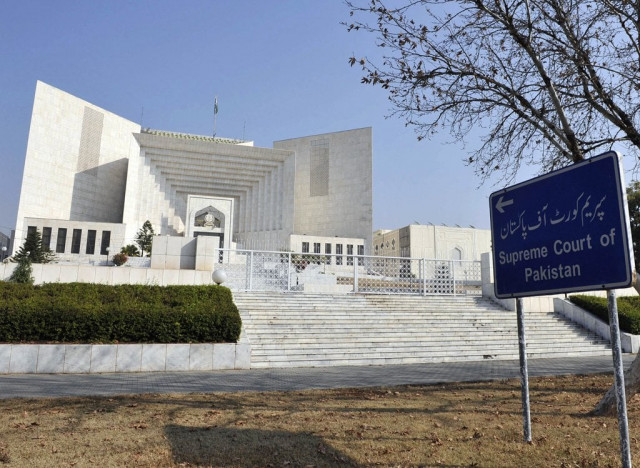Judge’s role is that of neutral umpire: SC
Rules that a judge should not enter arena in an adversarial system

PHOTO: FILE
"In an adversarial system, the role of the judge is that of a neutral umpire, unruffled by emotions, a judge is to ensure fair trial between the prosecution and the defence on the basis of the evidence before [him]," said an SC judgment, authored by Justice Syed Mansoor Ali Shah.
The verdict set aside an order of the Lahore High Court (LHC) which had directed authorities to obtain fresh samples of an alleged intoxicating substance in a narcotics case and to prepare a fresh report of the chemical examiner.
The SC order sought to answer whether a high court could assume role of a prosecutor and fill the lacunas left by the parties during a trial and said the judge should not enter the arena so as to appear that he is taking sides.
"The court cannot allow one of the parties to fill lacunas in their evidence or extend a second chance to a party to improve their case or the quality of the evidence tendered by them," the court noted. It said an important dimension of this case is the role of a criminal court in an adversarial system of justice.
“The adversarial system is a two-sided structure under which criminal trial courts operate that pits the prosecution against the defence. Justice is done when the most effective and rightful adversary is able to convince the judge or jury that his or her perspective on the case is the correct one.”
The court said the fundamental construct of our criminal courts is modeled on an adversarial system of justice which decides on the strength of the evidence of the parties. It said in exceptional cases the criminal courts exercise inquisitorial powers under certain provisions of Criminal Procedure Code, 1898 (CrPC) to secure the ends of justice.
“However, these provisions are not attracted in the facts of the present case,” it added.
The SC said: “The court being a neutral arbiter has to dispassionately appreciate, appraise, examine and weigh the evidence placed before it, rather than by ignoring the evidence and embarking on a probing journey guided by emotions, sentiments and sense of self-styled justice pegged on the lofty notion of societal reform.”
The apex court declared that any such step would tarnish objectivity and impartiality of the court which is its hallmark. Such favoured intervention, no matter how well-meaning, strikes at the very foundations of fair trial, which is now recognised as a fundamental right under article 10-A of the Constitution.
In the present narcotics case, it said, the LHC direction for obtaining fresh samples of the alleged intoxicating substance and preparing a fresh report of the Chemical Examiner amounts to granting the prosecution a premium on its failure to put up a proper case in the first instance.
"Such judicial intervention is opposed to the adversary principle and offensive to the fundamental right of fair trial and due process guaranteed under the Constitution.”
The SC said the LHC went beyond its lawful powers under section 423(1)(a) CrPC when it directed to conduct re-investigation or further investigation of the case, which was not permissible under the law.
“Even otherwise, calling for fresh examination of the intoxicating substance at the appellate stage after all these years may frustrate the settled law as to safe custody and safe transmission of the recovered substance making the report of the chemical examiner suspected and unreliable. In view of reasoning, the court sets aside LHC order regarding re-trial of accused who was acquitted by trial court,” it added.



















COMMENTS
Comments are moderated and generally will be posted if they are on-topic and not abusive.
For more information, please see our Comments FAQ